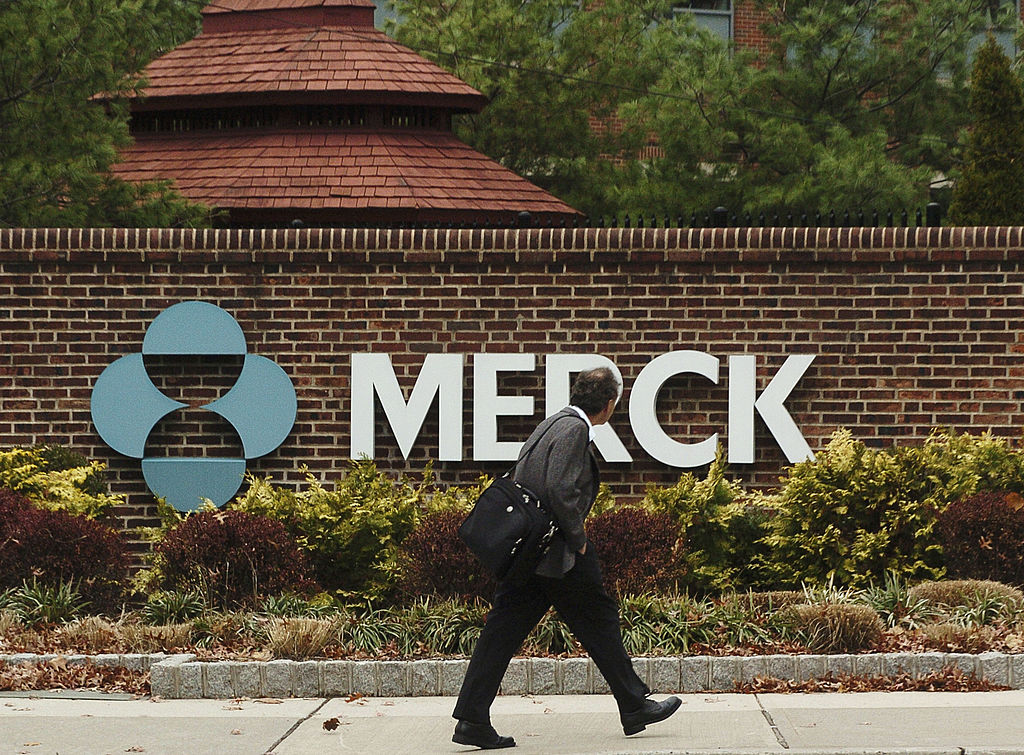U.S. drug company Merck strikes deal with nonprofit to share COVID pill formula with poorer nations


A free daily email with the biggest news stories of the day – and the best features from TheWeek.com
You are now subscribed
Your newsletter sign-up was successful
U.S. drug company Merck has granted U.N.-backed nonprofit Medicines Patent Pool a royalty-free license for its experimental new COVID-19 drug, allowing Merck's treatment to be "manufactured and sold cheaply" in the world's poorest nations, reports The New York Times.
The deal — which is set-up in hopes of expanding the drug's availability, widening its manufacturing base, and potentially pushing down its price, per The Washington Post — permits companies in 105 countries, particularly in Africa and Asia, to sublicense the formula for the "promising" antiviral pill and begin making it for their own populations, per the Times. Earlier in October, Merck reported that the "easy-to-take pill" is "shown to reduce the risk of hospitalization and death in some cases," writes the Post.
Some treatment-access advocates have welcomed the new deal, which will hopefully right some of the lopsided COVID treatment access the world is seeing now.
The Week
Escape your echo chamber. Get the facts behind the news, plus analysis from multiple perspectives.

Sign up for The Week's Free Newsletters
From our morning news briefing to a weekly Good News Newsletter, get the best of The Week delivered directly to your inbox.
From our morning news briefing to a weekly Good News Newsletter, get the best of The Week delivered directly to your inbox.
"The Merck license is a very good and meaningful protection for people living in countries where more than half of the world's population lives," James Love, head of Knowledge Ecology International, told the Times. "It will make a difference."
Added Charles Gore, director of nonprofit Medicines Patent Pool: "This is hopefully going to make things a lot easier in terms of keeping people out of hospital and stopping people dying in low- and middle-income countries," he said.
What's more, so long as the WHO classifies COVID-19 as a public health emergency, neither Merck nor its partners — Ridgeback Biotherapeutics and Emory University — will receive royalties from drug sales under the agreement, per the Post.
Added Director of Public Citizen and MPP boardmember Peter Maybarduk: "This license will not solve everything, but it is a starting point and an example."
A free daily email with the biggest news stories of the day – and the best features from TheWeek.com
Brigid Kennedy worked at The Week from 2021 to 2023 as a staff writer, junior editor and then story editor, with an interest in U.S. politics, the economy and the music industry.
-
 The ‘ravenous’ demand for Cornish minerals
The ‘ravenous’ demand for Cornish mineralsUnder the Radar Growing need for critical minerals to power tech has intensified ‘appetite’ for lithium, which could be a ‘huge boon’ for local economy
-
 Why are election experts taking Trump’s midterm threats seriously?
Why are election experts taking Trump’s midterm threats seriously?IN THE SPOTLIGHT As the president muses about polling place deployments and a centralized electoral system aimed at one-party control, lawmakers are taking this administration at its word
-
 ‘Restaurateurs have become millionaires’
‘Restaurateurs have become millionaires’Instant Opinion Opinion, comment and editorials of the day
-
 Blue Origin launches Mars probes in NASA debut
Blue Origin launches Mars probes in NASA debutSpeed Read The New Glenn rocket is carrying small twin spacecraft toward Mars as part of NASA’s Escapade mission
-
 Dinosaurs were thriving before asteroid, study finds
Dinosaurs were thriving before asteroid, study findsSpeed Read The dinosaurs would not have gone extinct if not for the asteroid
-
 SpaceX breaks Starship losing streak in 10th test
SpaceX breaks Starship losing streak in 10th testspeed read The Starship rocket's test flight was largely successful, deploying eight dummy satellites during its hour in space
-
 Rabbits with 'horns' sighted across Colorado
Rabbits with 'horns' sighted across Coloradospeed read These creatures are infected with the 'mostly harmless' Shope papilloma virus
-
 Lithium shows promise in Alzheimer's study
Lithium shows promise in Alzheimer's studySpeed Read Potential new treatments could use small amounts of the common metal
-
 Scientists discover cause of massive sea star die-off
Scientists discover cause of massive sea star die-offSpeed Read A bacteria related to cholera has been found responsible for the deaths of more than 5 billion sea stars
-
 'Thriving' ecosystem found 30,000 feet undersea
'Thriving' ecosystem found 30,000 feet underseaSpeed Read Researchers discovered communities of creatures living in frigid, pitch-black waters under high pressure
-
 New York plans first nuclear plant in 36 years
New York plans first nuclear plant in 36 yearsSpeed Read The plant, to be constructed somewhere in upstate New York, will produce enough energy to power a million homes
